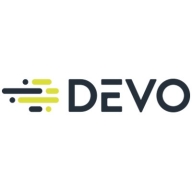

Find out in this report how the two Security Information and Event Management (SIEM) solutions compare in terms of features, pricing, service and support, easy of deployment, and ROI.
With premium support, core Palo Alto technical experts handle issues directly.
It is ineffective in terms of responding to basic queries and addressing future requirements.
I would rate the support of Palo Alto a nine out of ten.
Without proper integration, scaling up with more servers is meaningless.
Cortex XSIAM is highly scalable.
The product was easy to install and set up and worked right.
Overall, Cortex XSIAM is stable.
It works really nice and performs really efficiently after configuration.
In terms of incident response automation, it is quite poor due to the lack of integration with all security tools, making manual intervention necessary.
Cortex XSIAM needs improvements in terms of data onboarding, parsers, and third-party integration supports.
Cortex XSIAM is on the expensive side and requires substantial improvement in pricing.
Integrations with other sandboxes could be improved to better interpret data using AI and machine learning models.
The product is very expensive.
Cortex XSIAM is pretty expensive, and the licensing process is not very comfortable.
The first impression is that XSIAM would be more expensive than others we tried.
The advanced visualization capabilities of the product are important for understanding security trends in an organization.
Its signature-less subscriptions and robust detection power stand out in improving threat detection.
Cortex XSIAM allows us to onboard almost every device, whether they are on-prem or on SaaS.
When they see a spike in a line chart for a failed login, which could be a true or false attempt, they can click that spike, and a table widget on the same active board instantly populates with raw logs of data for those specific failed logins.
| Product | Market Share (%) |
|---|---|
| Cortex XSIAM | 2.6% |
| Devo | 1.1% |
| Other | 96.3% |
| Company Size | Count |
|---|---|
| Small Business | 9 |
| Midsize Enterprise | 2 |
| Large Enterprise | 4 |
| Company Size | Count |
|---|---|
| Small Business | 8 |
| Midsize Enterprise | 4 |
| Large Enterprise | 11 |
Cortex XSIAM acts as a critical element for SOC foundations, integrating SIEM and EDR capabilities, valued for threat detection and seamless security orchestration with Palo Alto Networks products.
Organizations find Cortex XSIAM beneficial for SOC foundations due to its capability to integrate SIEM and EDR tools, facilitating data collection, detection, and response. It connects with third-party data sources while reducing management effort and offering cost-effective alternatives to competitors like CrowdStrike and Trend Micro. Featuring automation and integration with Palo Alto Networks products, Cortex XSIAM enhances threat detection. Unified architecture allows a comprehensive view of attacks, further supported by machine learning and integration with existing vendor solutions, ensuring that users gain insights without significant manual log analysis.
What are Cortex XSIAM's key features?
What benefits are evident in Cortex XSIAM reviews?
Industries implement Cortex XSIAM mainly in technology-driven sectors where centralized endpoint protection and automation of forensic investigation are paramount. By integrating several third-party systems for incident response, companies in competitive markets leverage its attributes for heightened operational security efficiency. However, users note areas for improvement, such as Attack Surface Management and integration enhancements, to better suit tech-heavy industries needing extensive connectivity with cybersecurity solutions.
Devo is the only cloud-native logging and security analytics platform that releases the full potential of all your data to empower bold, confident action when it matters most. Only the Devo platform delivers the powerful combination of real-time visibility, high-performance analytics, scalability, multitenancy, and low TCO crucial for monitoring and securing business operations as enterprises accelerate their shift to the cloud.
We monitor all Security Information and Event Management (SIEM) reviews to prevent fraudulent reviews and keep review quality high. We do not post reviews by company employees or direct competitors. We validate each review for authenticity via cross-reference with LinkedIn, and personal follow-up with the reviewer when necessary.